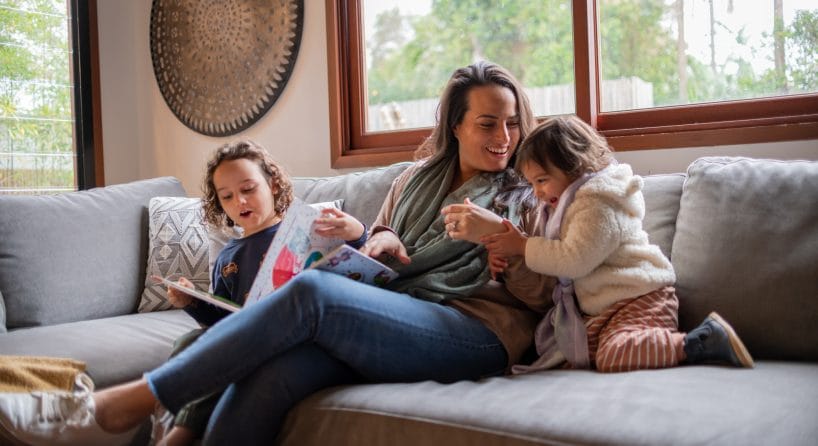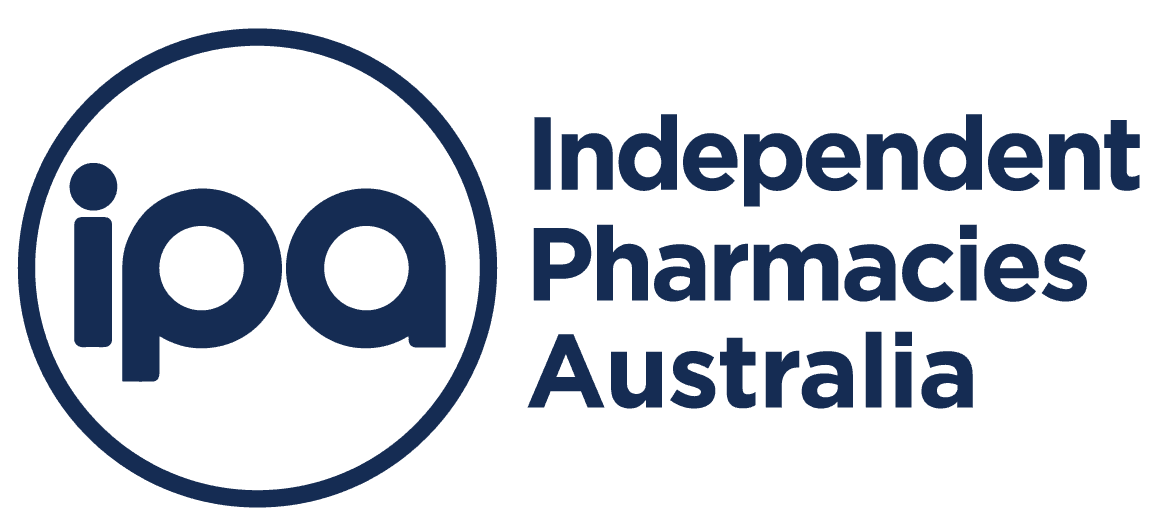
RSV: What You Need to Know This Winter – And How You Can Protect Your Family
As winter settles in, we often hear a lot about protecting ourselves from COVID-19 and influenza. But there’s another important respiratory infection that deserves just as much attention – Respiratory Syncytial Virus, or RSV.
RSV is a virus that almost everyone will encounter at some point, usually in early childhood. In fact, it’s so common that most children have been infected by the time they turn two. However, just because it’s common doesn’t mean it’s harmless – especially for our most vulnerable, including young children, older adults, and people with compromised immune systems.
At your local IPA Pharmacy, we’re committed to helping protect your whole family this winter. Here’s what you need to know about RSV, who’s most at risk, how you can get vaccinated, and why now is the right time to act.
What is RSV Vaccination?
RSV stands for Respiratory Syncytial Virus. It’s a highly contagious virus that causes infections of the respiratory tract — the nose, throat, and lungs.
For most healthy adults and children, RSV infection looks a lot like a mild cold lasting one to two weeks. Common symptoms include:
- Runny nose
- Cough
- Wheeze
- Trouble breathing
- Fever
But for certain groups, RSV can become much more serious.
When RSV spreads deeper into the lungs, it can lead to:
- Bronchiolitis – inflammation of the small airways in the lungs. In babies, this can cause wheezing, coughing, and difficulty breathing – even in otherwise healthy little ones.
- Croup – a distinctive cough that sounds like a barking seal, often accompanied by noisy, laboured breathing. Croup can be very distressing for both children and parents.
- Pneumonia – a more severe lung infection that can cause serious breathing difficulties and sometimes requires hospital care.
RSV can sometimes lead to hospitalisation, and in the most serious cases, admission to intensive care.
RSV in Australia: The Current Picture
During the COVID-19 pandemic, cases of RSV were lower. Thanks to social distancing, mask-wearing, and lockdowns, the virus had fewer chances to spread. However, since 2022, RSV rates have been increasing. This increase is likely due to changes in testing practices (more respiratory viruses are being tested alongside COVID-19) – and also because people are now mixing more freely.
In 2024 alone, there were 175,000 cases of RSV reported in Australia. To 14 April 2025, there have been nearly 31,000 RSV notifications.
Traditionally, RSV follows a seasonal pattern, with most cases appearing from autumn through winter. However, this seasonal trend is shifting. Thanks to global travel and changes in how people interact, RSV cases are now being seen throughout the year.
How is RSV Spread – and How Can You Prevent It?
RSV is highly contagious and spreads through:
- Coughs and sneezes releasing droplets into the air
- Direct contact with an infected person
- Touching contaminated surfaces and then touching your face
To protect yourself and others:
- Practice good hand hygiene – wash hands thoroughly and regularly.
- Wear a mask in crowded indoor spaces, especially if you’re feeling unwell.
- Maintain social distancing when possible.
- Stay home if you or your child are sick.
Here are some ways to help avoid spreading RSV for parents of children:
- Don’t let your child share drinks, cutlery or toys while sick. Sanitise these items thoroughly between uses.
- Encourage your child to cough and sneeze into a tissue and then dispose of it immediately.
- Teach your child to wash their hands frequently including after blowing their nose or if they’ve coughed into their hand.
- Keep your child away from newborn infants or people with compromised immune systems while unwell.
And now, thanks to advances in medicine, we have vaccines available for specific at-risk groups.
Need to Check for RSV? Testing Options Are Available
If you or a family member are experiencing cold or flu-like symptoms and you’re concerned it might be RSV, there are convenient testing options available to help confirm the cause.
Rapid antigen tests (RATs) for RSV are now available for purchase at many IPA Pharmacies. These easy-to-use home tests provide quick results, helping you know whether RSV might be the reason for your symptoms.
Alternatively, your doctor can arrange a swab test, often combining testing for RSV, influenza, and COVID-19 at the same time.
Need Help Fast? Telehealth Can Support You
If you can’t easily visit your GP or pharmacy in person, our Telehealth service offers a simple and fast solution.
You can access qualified healthcare professionals via telehealth consultations – from the comfort of your home. A Doctor can assess your symptoms, organise RSV swab testing if needed, and even arrange for prescriptions or medical certificates if appropriate.
If you’re already visiting an IPA pharmacy, our team can help facilitate a Telehealth session for you. We’ll guide you through the process, making it even easier to connect with a doctor when you need it most.
It’s just another way IPA Pharmacies are making healthcare more accessible, especially when you or your family are unwell and need trusted, convenient advice quickly.
New Vaccination Options for RSV
Excitingly, RSV vaccinations are now available in Australia for:
- Pregnant women (through the National Immunisation Program)
- Older adults (aged 60 years and over)
Getting vaccinated not only helps protect the person receiving the vaccine but also reduces the spread of the virus within the community.
Protecting Mums and Bubs: RSV Vaccination in Pregnancy
For pregnant women, RSV vaccination is especially important. When the vaccine is administered during pregnancy (recommended between 28 and 36 weeks gestation), it helps pass protective antibodies to the unborn baby protecting them until they are 6 months old. Research shows that RSV vaccines in pregnancy reduce the risk of severe RSV disease in babies under 6 months of age by about 70%. This means that for the critical first few months of life – when babies are at highest risk of severe RSV illness – they already have some level of protection.
The RSV vaccine for pregnant women is included in the National Immunisation Program (NIP), which means it’s free for eligible people. Plus, RSV vaccines can be safely co-administered with other vaccines like the flu shot. So if you’re already booking in your influenza vaccination, it’s a great time to ask about RSV protection too!
In addition to vaccination, most states and territories have programs offering RSV medicine (monoclonal antibody) for infants and young children to help protect against RSV infection, especially for those at higher risk.
Protecting Our Grandparents – and the Whole Family
RSV doesn’t just affect children. In older adults, particularly those over 60, RSV can cause serious complications, including pneumonia and worsening of existing conditions like asthma or chronic obstructive pulmonary disease (COPD).
That’s why certain groups are now recommended to consider RSV vaccination, including:
- All adults aged 75 years and older
- Aboriginal and Torres Strait Islander people aged 60 years and older
- Adults aged 60 years and older with medical risk factors for severe RSV disease (such as chronic lung disease, diabetes, kidney disease)
Much like we recommend vaccinations for whooping cough (pertussis) and influenza, getting the RSV vaccine helps protect not just yourself, but also the vulnerable people around you.
This is particularly important for grandparents and older family members who spend time with newborns and young children. By getting vaccinated, you help create a protective circle around vulnerable infants – a concept known as herd immunity.
What is Herd Immunity?
Herd immunity occurs when enough people in a community are immune to an infection (through vaccination or previous infection) that it slows or stops the spread of the disease.
By getting vaccinated, you’re not just protecting yourself – you’re also protecting the very young, the elderly, and others who might be unable to get vaccinated themselves.
Your local IPA Pharmacy Can Help
IPA Pharmacies make it easy to protect yourself and your family against RSV and other respiratory infections.
Our trained pharmacists are qualified to administer vaccinations, including the new RSV vaccines for eligible groups. We can also answer any questions you may have about vaccine timing, co-administration with other vaccines (like influenza and COVID-19 boosters), and eligibility requirements.
It’s quick and convenient – often without the need for a doctor’s appointment.
Speak with your local IPA Pharmacy team today to schedule your RSV vaccination.
Together, we can help keep our families – and our communities – safe and healthy this all year round.
Who are IPA Pharmacists?
IPA Pharmacists are part of Australia’s largest network of independent pharmacies. They offer personalised healthcare and expertise in medicines. They specialise in various health aspects, such as sleep and diabetes, and are dedicated to supporting your wellness journey. With a network of over 1,100 pharmacies and growing, an IPA pharmacy near you is ready to provide exceptional advice, services, and products to enhance your health outcomes.
